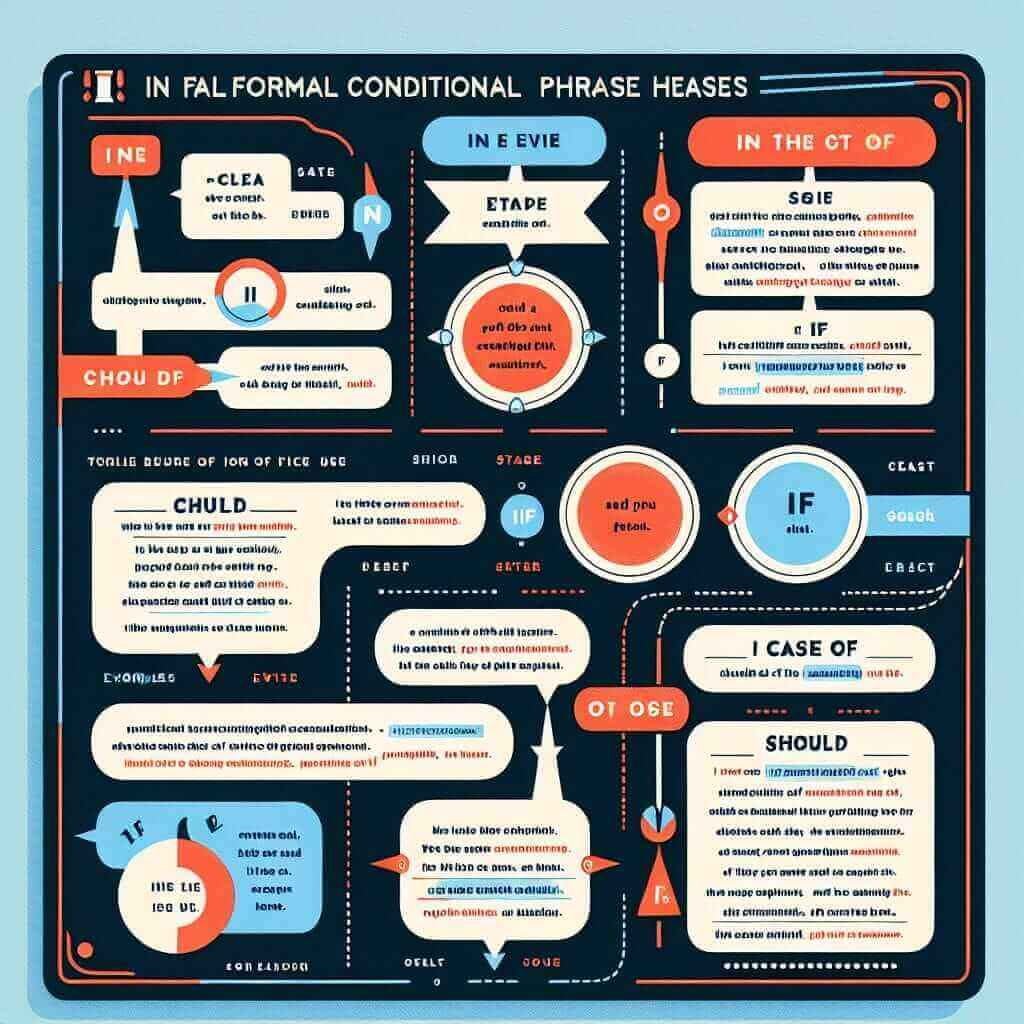“In the event of” is a formal phrase frequently used in academic and professional writing, including the IELTS exam. It indicates that something should happen or be done if a particular situation occurs. Understanding its usage and synonyms is crucial for achieving a higher band score in your IELTS writing and speaking.
Let’s examine some examples of how “in the event of” can be applied across different sections of the IELTS exam:
Speaking:
- “In the event of a fire alarm, all participants must evacuate the building immediately.” (Part 1: Describing a safety procedure)
- “Some people believe that online learning will replace traditional classrooms in the event of a pandemic.” (Part 3: Discussing the future of education)
Writing:
- “The company reserves the right to cancel the contract in the event of non-payment.” (Task 1: Describing terms and conditions)
- “Governments need to invest in renewable energy sources in the event of future fossil fuel shortages.” (Task 2: Expressing an opinion on environmental issues)
As you can see, “in the event of” helps convey information clearly and concisely, demonstrating your grasp of advanced vocabulary and grammatical structures.
Understanding “In the event of”
“In the event of” signifies a conditional situation, similar to “if” or “in case of.” However, it carries a more formal and emphatic tone, emphasizing the importance of the event and its potential consequences. It’s commonly used in official instructions, legal documents, and academic discussions.
While “in the event of” doesn’t frequently appear in IELTS exams, mastering it demonstrates a wider vocabulary range, which is crucial for achieving a higher band score. This knowledge allows you to express conditional statements in a more sophisticated and nuanced manner, showcasing your command over complex grammatical structures.
Using “In the event of” Effectively
Formula and Grammatical Structure:
In the event of + noun phrase + , + main clause
Let’s break down the structure:
- “In the event of”: This phrase sets up the conditional situation.
- Noun phrase: This specifies the particular event or circumstance.
- Comma (,): Separates the conditional clause from the main clause.
- Main clause: This outlines the action or consequence that follows if the event occurs.
Application in IELTS Writing and Speaking:
IELTS Writing Task 1 (Describing Processes or Charts):
“In the event of a power outage, the backup generator will automatically activate to ensure continuous operation.”
IELTS Writing Task 2 (Opinion/Discussion Essay):
“Some argue that governments should prioritize economic growth even in the event of environmental damage.”
IELTS Speaking Part 2 (Cue Card):
“Describe a time you had to change your plans in the event of unexpected circumstances.”
Using “In the event of” for Higher Band Scores:
To achieve a band score of 7 or higher, you need to demonstrate control over complex grammatical structures and use a wide range of vocabulary. “In the event of” can help you achieve this by:
- Replacing simpler conditional phrases: Instead of saying “if,” using “in the event of” adds formality and emphasizes the importance of the condition.
- Creating compound sentences: This demonstrates your ability to construct complex sentences with multiple clauses.
- Demonstrating formal language control: This is especially important for IELTS Writing Task 1 and more formal speaking sections.
Synonyms and Alternatives
While “in the event of” is highly effective, using synonyms can demonstrate a broader vocabulary and prevent repetition. Here are some alternatives and how they subtly differ in meaning:

- In case of: More common in everyday language; suggests a possibility rather than a strong likelihood.
- Should: Implies a slightly lower probability than “in the event of.”
- If: The most common and neutral option, but less formal and emphatic.
Choosing the right phrase depends on the context and desired level of formality.
Common Errors and How to Avoid Them
-
Incorrect preposition: Using prepositions other than “of” after “in the event.” Remember, the correct phrase is “in the event of.”
Incorrect: “In the event for a fire…”
Correct: “In the event of a fire…” -
Missing comma: Forgetting to place a comma after the conditional clause can lead to grammatical errors.
Incorrect: “In the event of rain the picnic will be canceled.”
Correct: “In the event of rain, the picnic will be canceled.” -
Overusing the phrase: While impressive, overusing “in the event of” can make your writing sound unnatural. Vary your language with synonyms and alternative sentence structures.
Conclusion
Mastering “in the event of” and its variations can significantly enhance your IELTS writing and speaking performance. Remember to use this phrase appropriately in formal contexts, pay close attention to grammatical accuracy, and explore synonyms to enrich your vocabulary.
Practice incorporating “in the event of” into your IELTS preparation, particularly when addressing potential problems or solutions, as often seen in topics related to government policies, environmental issues, or technological advancements. By doing so, you’ll be well-equipped to demonstrate your advanced language skills and achieve your desired band score.